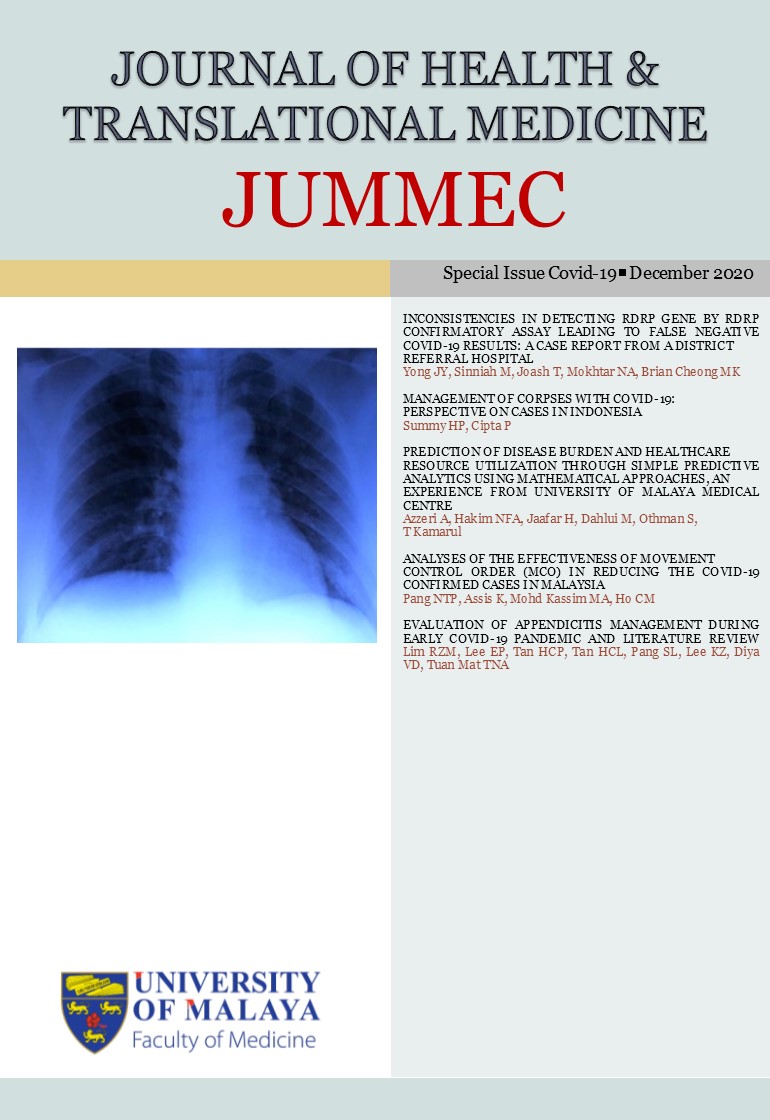EVALUATION OF APPENDICITIS MANAGEMENT DURING EARLY COVID-19 PANDEMIC AND LITERATURE REVIEW
Received 2020-11-09; Accepted 2021-03-02; Published 2021-07-25
DOI:
https://doi.org/10.22452/jummec.sp2020no1.5Keywords:
Appendicitis, Pandemic, SARS-CoV-2, COVID-19, ScreeningAbstract
Purpose: Numerous guidelines have been proposed in managing surgical emergencies during COVID-19 pandemic. Literature on the implications of these adjustments during this pandemic remained limited. This review aims to examine the implications of these critical adjustments with focus on appendicitis management.
Method: This is a single-centre retrospective observational study in a Malaysian tertiary state surgical centre and review of recent guidelines and literature. Patients with appendicitis from March to May 2020 were included and medical records were reviewed and analysed.
Results: Of the 173 appendicitis patients, 117 (67.6%) were operated and 56 (32.4%) were conservatively treated. Those screened for SARS-CoV-2 pre-operatively showed longer wait for operation (3.0 vs 2.0 days, p=0.001) and a longer hospital stay (4.5 vs 4.0 days, p=0.005). One-third of patients screened (36.6%) were expedited for surgery on clinical suspicion of complicated appendicitis and 42.1% progressed from acute to complicated appendicitis while waiting for screening result. All patients screened were COVID-19 negative. Delay due to SARS-CoV-2 screening did not result in worse outcome for appendicitis patients.
Conclusion: With the increase in incidence and rise of COVID-19 cases, routine screening by questionnaire, physical examination and naso-oropharyngeal swab may be considered to detect asymptomatic carrier, especially in regions with high infection. Regular reassessment with low threshold to expedite the surgery is necessary, to ensure satisfactory surgical outcome.
Downloads
Downloads
Published
Issue
Section
License
All authors agree that the article, if editorially accepted for publication, shall be licensed under the Creative Commons Attribution License 4.0 to allow others to freely access, copy and use research provided the author is correctly attributed, unless otherwise stated. All articles are available online without charge or other barriers to access. However, anyone wishing to reproduce large quantities of an article (250+) should inform the publisher. Any opinion expressed in the articles are those of the authors and do not reflect that of the University of Malaya, 50603 Kuala Lumpur, Malaysia.


